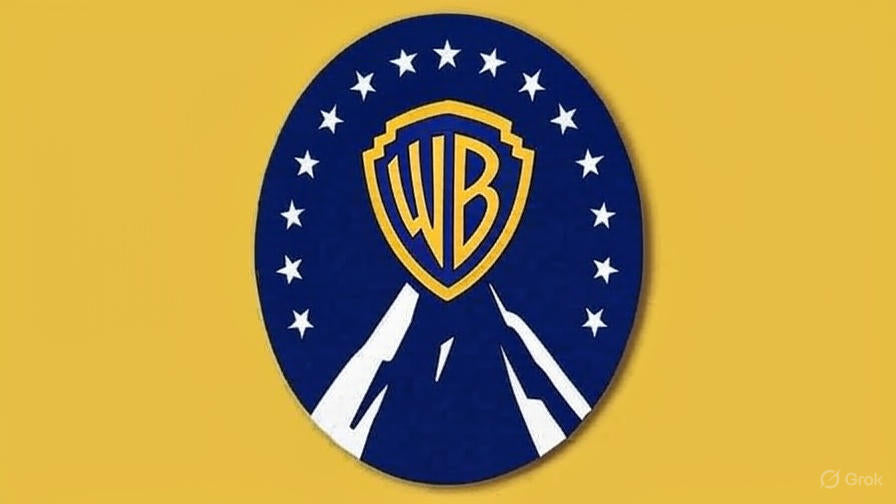Warner Bros. Discovery Rejects Paramount Skydance Bid: Industry Shake-Up [7]
Introduction
Warner Bros. Discovery (WBD), one of Hollywood's media giants, has rejected a second acquisition bid from Paramount Skydance, signaling major developments in the entertainment industry. The news, first reported on X (formerly Twitter) by @CultureCrave citing Deadline, marks a pivotal moment amid WBD's strategic review process. The rejection raises questions about potential suitors, financial stakes, and the future of beloved franchises like DC Comics, HBO content, and more.
Warner Bros rejected Paramount's second bid to buy the company
— Culture Crave 🍿 (@CultureCrave) October 22, 2025
(via @Deadline) pic.twitter.com/uqy5uHBtT8
Background: Warner Bros. Discovery & Paramount Skydance
Warner Bros. Discovery was formed through the 2022 merger of WarnerMedia and Discovery. Facing declining linear TV revenue, streaming competition, and significant debt, WBD is planning a major restructuring. Next year, it intends to split its operations into two segments:
- Warner Bros. Studios & Streaming – Including HBO Max and film studios.
- Discovery Global Linear TV – Traditional cable and television networks.
Paramount Skydance, led by David Ellison (son of Oracle founder Larry Ellison), is aggressively pursuing consolidation after its recent merger in August 2025. Paramount raised its bid from $20 per share to $24 per share, but WBD rejected the offer.
Financial Implications
WBD's stock has surged recently, doubling since the Paramount-Skydance merger and reaching a three-year high with an 11% jump after the news broke. This rise increases acquisition costs, making potential deals more expensive and complicated.
Potential Buyers & Industry Reactions
Speculation is rampant about who might bid next. Potential suitors include:
- Comcast – Faces antitrust considerations if it pursues WBD.
- Netflix – Greg Peters, co-CEO, has dismissed the likelihood of a bid.
- Amazon – Could be a strategic buyer, though unconfirmed.
Fans on X expressed strong opinions, from merging DC Universe with Netflix to keeping WBD independent. The fervor highlights the high stakes for franchises like Harry Potter, DC Comics, and HBO productions.
Netflix and Comcast both have interest in acquiring Warner Bros’ film & TV assets but not the networks.
— DiscussingFilm (@DiscussingFilm) October 21, 2025
(Source: https://t.co/3YrDdq1BrZ) pic.twitter.com/ToFvQ9mQIp
Implications for the Entertainment Industry
The rejection emphasizes ongoing consolidation in Hollywood, driven by competition with tech giants like Apple and Amazon. Possible outcomes of an acquisition include:
- Merged streaming platforms (e.g., HBO Max + Paramount+)
- Potential cost savings and synergies
- Job reductions or restructuring risks
- Reduced competition affecting content diversity
WBD’s strategic review, combined with quarterly earnings reports, will provide more clarity on the studio’s direction.
FAQs
Q1: Why did Warner Bros. Discovery reject Paramount’s bid?
A: WBD likely seeks better terms or alternative offers, aiming to maximize shareholder value and retain strategic flexibility.
Q2: Could there be a third bid from Paramount?
A: It is possible, but industry analysts suggest WBD may consider other suitors first.
Q3: How does this affect popular franchises?
A: Franchises like DC Comics, Harry Potter, and HBO content remain intact for now, but any future merger could impact production and distribution strategies.
Q4: Who else might be interested in acquiring WBD?
A: Comcast, Amazon, and other media conglomerates are rumored potential buyers, though no confirmations exist.
Warner Bros. Discovery officially announced their company is for sale. This includes their gaming division which includes these upcoming titles...
— MBG (@xMBGx) October 21, 2025
- Batman/DC games
- Mortal Kombat/Injustice
- Hogwarts Legacy 2
- New Lord of the Rings AAA action game pic.twitter.com/EFpr7Bm7rm
Conclusion
Warner Bros. Discovery’s rejection of Paramount Skydance’s second bid demonstrates the complexities of Hollywood mergers in today’s streaming-dominated media landscape. While fans and analysts speculate about potential buyers, WBD’s independence for now emphasizes strategic patience and long-term vision. This scenario serves as a reminder that even industry giants must weigh financial gains, brand integrity, and operational efficiency before making irreversible decisions.
Neutral Opinion (Detailed & Intellectual):
The refusal to sell highlights a crucial balancing act in modern media economics. On one hand, consolidations offer scale, cost savings, and content synergy. On the other, they risk stifling creative freedom, reducing competition, and undermining the cultural value of iconic franchises. WBD’s move underscores a broader lesson: in an era of tech-driven disruption, maintaining strategic autonomy and carefully evaluating acquisition offers may prove more valuable than immediate financial gain. Industry observers should view this not as a single corporate decision but as a case study in adaptive strategy amidst rapid market evolution.


0 comments